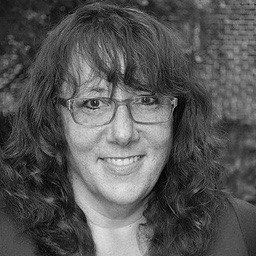
While the federal government discusses possible financial help for those impacted by the novel coronavirus COVID-19, Jewish free loan associations from coast to coast are stepping up to help those who have lost work or are racking up medical bills as a result of the pandemic.
Los Angeles’ Jewish Free Loan Association (JFLA), San Francisco’s Hebrew Free Loan Association (HFLASF) and New York’s Hebrew Free Loan Society (HFLS) recently debuted lending programs offering up to $10,000 in interest-free borrowing to individuals and small businesses for pandemic-related needs.
“I anticipate most of the trouble will be about small businesses not being able to make payroll,” Cynthia Rogoway, executive director of HFLASF and president of the International Association of Jewish Free Loans, told the Journal. “There hopefully will be some government programs to ease that kind of pain. But in terms of government programs, the average person in the community is going to be really out of luck.”
There are 46 Jewish free loan associations across North America and one each in Australia and Israel. “Most of the agencies will be offering support to people affected by coronavirus whether they have a program or not,” Rogoway said.
In some cases, the loan associations have softened their requirements to make borrowing easier for people in crisis. In New York, one guarantor is needed rather than the usual two.
The pandemic “is unfolding daily and no one knows what it will look like” in the weeks ahead, said Kelly Halligan, who is in charge of donor and community relations at the JFLA. “We’re doing our best to be proactive and stay ahead of the situation and have these dollars available for people when they need them.”
JFLA is offering the coronavirus loans for up to $10,000 with no fees to small businesses facing losses and individuals dealing with lost wages, child care costs and funds lost due to canceled travel plans, Halligan said. It has allocated $250,000 to coronavirus loans, JFLA Executive Director Rachel Grose added.
A loan also is available “if people need to cover medication bills or medical treatments because of coronavirus,” said Nikki Sieger, program supervisor at the JFLA. Loans also are aimed at people “if they can’t pay their bills. Any kind of emergency situation that comes about because they aren’t receiving pay, have to take care of family members or are in self-quarantine,” she said.
Borrowers in L.A. and New York may be of any faith. For those in Northern California applying through the HFLASF, low-income university students can be of any faith if referred through one of its partner social service agencies but otherwise must be Jewish.
“We’re doing our best to be proactive and stay ahead of the situation and have these dollars available for people when they need them.”
— Kelly Halligan
With universities around the world closing down their dorms and sending students home, those studying abroad have to make emergency plans that often involve buying last-minute plane tickets and losing program fees. Kahal Abroad, an organization that supports Jewish students studying internationally, is working to connect those who need financial support with the free loan agency closest to their hometown, Rogoway said.
Once an application is filed, it can be turned around in a few days, compared to the 10 business days needed to process a loan in nonemergency situations, said JFLA’s Sieger.
Repayment periods vary slightly from one lender to another. In San Francisco, people generally have a year to repay each thousand dollars they borrow. “People who have existing loans with us facing financial trouble may need to slow down their payments,” Rogoway said. “I anticipate those requests, too.” The San Francisco agency is able to allocate “a significant amount” to coronavirus loans, she said, and “we will dip into our reserves” if needed.
In New York the repayment period is typically 20 months, “but if someone has circumstances that make that problematic, we work with them,” said Rabbi David Rosenn, the society’s executive director. “Our mission is to try to make it affordable for people to access the credit they need.”
As of press time, no completed coronavirus loan applications have been filed, the heads of each of the agencies said. However, early indicators pointed to interest in the loans being high, Rosenn said, with 1,500 page views and the application itself having been downloaded several dozen times. Rosenn’s agency has initially allocated $1 million to coronavirus loans and is trying to line up resources to be able to provide “several million more,” he said, and the HFLS is in the process of finalizing a $500,000 commitment from a major financial services firm.
Unlike special loan programs initiated during other emergencies, such as the federal government shutdown in December 2018 and January 2019, “there is no back pay and none of this will get made up at the end” of the pandemic, Rosenn said. “The federal government is talking about various stimulus responses, but there will definitely be things that fall through the cracks, especially for lower-income people,” he said. “We are pretty confident this is going to get taken advantage of at a much higher rate than previous emergencies.”
“By offering this type of support, it provides the financial help people will desperately need right now,” Rogoway said, “and also gives everyone who hears about it a sense of emotional support — that there are agencies willing to provide this kind of relief.”
Debra Nussbaum Cohen is a journalist in New York City.






















 More news and opinions than at a Shabbat dinner, right in your inbox.
More news and opinions than at a Shabbat dinner, right in your inbox.